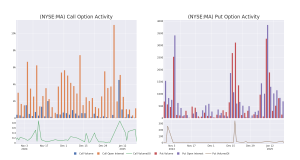Video game engine developer Unity (NYSE: U) is a classic case of a company with incredible assets that nevertheless fumbled its way into a crisis. Unity is one of two major commercial game engines that dominate the market, along with Epic Games’ Unreal Engine. There are plenty of other options, but the path of least resistance is Unity or Unreal.
Despite this dominant position, Unity has made some disastrous decisions over the past few years that have decimated the stock. First, the $4.4 billion acquisition of app monetization company ironSource failed to ignite growth in Unity’s advertising business. Grow Solutions, which encompasses ads and other monetization tools for mobile games, has suffered from declining revenue in recent quarters.
Start Your Mornings Smarter! Wake up with Breakfast news in your inbox every market day. Sign Up For Free »
Second, Unity’s attempt at monetizing its customer base through fees tied to app installs was a poorly communicated mess. The company’s reputation went up in flames in a matter of days, and the ordeal ultimately led to the ouster of former CEO John Riccitiello.
Unity stock is down more than 90% from its all-time high, revenue is in decline, and the bottom line remains deep in the red. While this may not sound like an enticing investment opportunity, the company is finally taking the right steps to turn itself around.
Soon after the former CEO departed, Unity began a full-scale cost-cutting effort that included substantial layoffs and a scaling back of the company’s ambitions. Unity laid off around 25% of its staff earlier this year and began exiting lines of business that were not deemed to be part of its “strategic portfolio.”
GAAP operating expenses dropped by 11% year over year in the third quarter of 2024, a step in the right direction. While Unity isn’t close to being profitable, the company is producing positive free cash flow. This gives it the flexibility to invest in its core products and go after growth opportunities, even as it works to boost efficiency.
New CEO Matthew Bromberg took over in May. While the cost-cutting effort was already well underway, Bromberg took the critical step of entirely cancelling the fees that had enraged developers. Those fees had already been scaled back, but the fact that they existed at all was an albatross around Unity’s neck.
Developer trust isn’t going to be rebuilt overnight, but Bromberg appears to understand that trying to nickel and dime Unity’s developer base isn’t the right approach. In lieu of the fees, Unity boosted its subscription pricing for its large customers, while making its free tier more generous. Some of the developers using the free tier will succeed and move into one of the paid tiers, and Unity will benefit from those customers’ successes.



